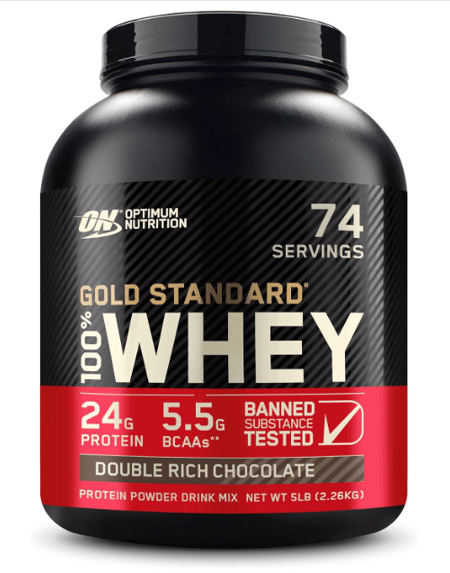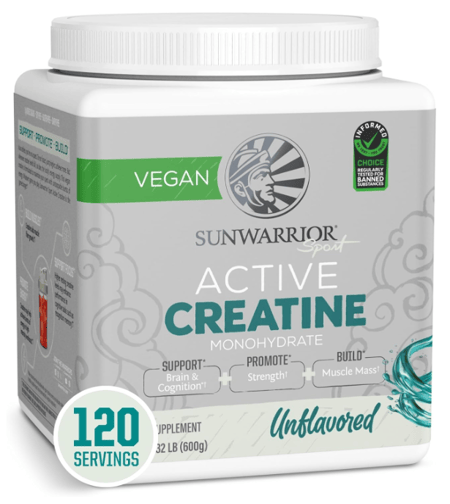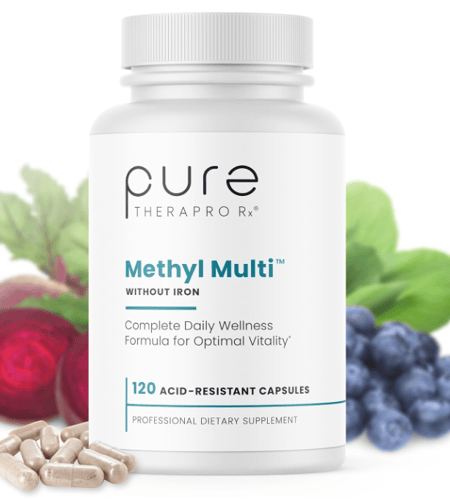12 Proven Tips to Speed Up Muscle Recovery and Boost Performance
Discover 12 proven tips to maximize muscle recovery, from nutrition and hydration to supplements and lifestyle habits. Boost your performance and prevent injury with these expert-backed strategies
WELLNESS
11/21/20246 min read


Table of Contents:
Foods to Boost Muscle Recovery
Protein Post-Workout
Protein Pre-Workout
Carbohydrates for Recovery
The Importance of a Balanced Diet
Drinks That Aid Muscle Recovery
Hydration: A Key Factor
The Benefits of Cherry Juice
Supplements to Enhance Muscle Recovery
Creatine Monohydrate
Protein Powder for Convenience
Lifestyle Habits to Support Recovery
Sleep: The Ultimate Recovery Tool
Massage Therapy
Things to Avoid During Muscle Recovery
Alcohol’s Impact on Recovery
The Negative Effects of Tobacco
Conclusion: Maximizing Muscle Recovery for Optimal Performance
Introduction
After an intense workout, muscle recovery is essential to achieving long-term strength and performance. It’s during recovery that your muscles repair and grow, ultimately making them stronger. The faster and more efficiently you recover, the better your performance will be in subsequent workouts.
In this blog, we’ll cover 12 scientifically-backed tips to help maximize your muscle recovery. From nutrition to hydration, lifestyle habits, and supplements, these strategies will ensure you're giving your body what it needs to rebuild muscle and improve overall performance. Whether you're a beginner or an experienced athlete, understanding these recovery techniques is key to reaching your fitness goals.
The Importance of Muscle Recovery
Muscle recovery plays a critical role in building stronger muscles. After exercise, microscopic tears form in your muscle fibers. Recovery is the process by which your body repairs these tears, making your muscles stronger. Neglecting recovery can lead to injury, fatigue, and diminished performance.
Maximizing recovery isn’t just about rest—it also involves the right nutrition, hydration, and lifestyle choices. This blog will provide you with 12 essential tips to optimize your muscle recovery for faster results.
1. Foods to Boost Muscle Recovery
What you eat after a workout is just as important as the workout itself. The right foods help repair damaged muscles, replenish energy stores, and support muscle growth.
Protein Post-Workout
Protein is the building block of muscle tissue. After a workout, your muscles need protein to repair the microscopic tears that occur during exercise. Consuming a source of high-quality protein post-workout—such as lean meats, eggs, or a protein shake—helps fuel muscle recovery. Aim for 1.6 grams of protein per kilogram of body weight each day to maximize muscle growth.
Protein Pre-Workout
While post-workout protein is well-known, pre-workout protein can also be beneficial. Eating protein before exercise can prevent muscle breakdown during your workout. This helps support muscle growth and aids in recovery. Aim for a moderate protein intake in the hours leading up to your workout.
Carbohydrates for Recovery
Carbohydrates are crucial for replenishing glycogen stores in muscles. After intense exercise, your muscles need to restore their glycogen levels. Pairing protein with carbohydrates, such as whole grains, fruits, or vegetables, after a workout can enhance recovery by providing energy for muscle repair and replenishment.
Creatine for Muscle Recovery
Creatine is a well-researched supplement that effectively aids muscle recovery through multiple mechanisms. It works by rapidly replenishing ATP (energy) stores in muscles, enhancing protein synthesis for better muscle repair, and increasing cell hydration which supports efficient recovery.
The Importance of a Balanced Diet
In addition to protein and carbs, a well-rounded diet with plenty of fruits, vegetables, and healthy fats (like olive oil, nuts, and avocado) is crucial for muscle recovery. A variety of nutrients ensures that you’re meeting all of your body’s needs, helping muscles repair and grow effectively.
2. Drinks That Aid Muscle Recovery
Proper hydration is vital for muscle recovery. Water helps deliver nutrients to muscle cells, remove waste products, and maintain proper muscle function. Additionally, certain drinks can enhance the recovery process.
Hydration: A Key Factor
Water plays a critical role in muscle repair and overall recovery. Dehydration can impair muscle function and hinder recovery. Drink plenty of water before, during, and after your workout to stay hydrated. A general rule of thumb is to drink 1.5 liters of water for every kilogram of body weight lost during exercise.
The Benefits of Cherry Juice
Cherry juice is a popular recovery drink due to its anti-inflammatory properties. Studies show that cherry juice can help reduce muscle soreness and inflammation after intense exercise. It may be particularly useful for those who engage in endurance activities, such as running or cycling.
3. Supplements to Enhance Muscle Recovery
While whole foods should be your primary source of nutrients, supplements can help fill in the gaps and provide extra support for muscle recovery.
Creatine Monohydrate
Creatine is one of the most well-researched and effective supplements for boosting muscle strength and recovery. It helps replenish ATP (adenosine triphosphate), the energy source your muscles use during exercise. Creatine also reduces inflammation and muscle damage, speeding up recovery time after high-intensity workouts. It’s especially effective for strength training and resistance exercise.
Protein Powder for Convenience
Protein powder is a quick and convenient way to meet your protein needs, especially post-workout. Whey, soy, and casein protein powders are all popular choices. They provide essential amino acids that support muscle recovery and growth. Using protein powder ensures you get a complete protein source without the need for large meals.
4. Lifestyle Habits to Support Recovery
In addition to diet and supplementation, your overall lifestyle plays a big role in how quickly you recover.
Sleep: The Ultimate Recovery Tool
Sleep is one of the most powerful recovery tools your body has. It’s during sleep that growth hormones are released, promoting muscle repair and regeneration. Lack of sleep impairs muscle recovery and performance. Aim for 7-9 hours of quality sleep each night, with athletes potentially needing up to 10 hours to recover fully after intense training sessions.
Massage Therapy
Massage therapy is a well-known technique to reduce muscle soreness and improve flexibility. A review of studies in 2020 found that massage has a small but significant effect on easing delayed onset muscle soreness (DOMS). Consider incorporating regular massages into your recovery routine to reduce tension and improve muscle mobility.
5. Things to Avoid During Muscle Recovery
Just as there are things that can help speed up recovery, there are also things that can hinder it. Avoiding certain habits will ensure your muscles recover more effectively.
Alcohol’s Impact on Recovery
Alcohol can negatively impact muscle recovery in several ways. It reduces sleep quality, increases inflammation, and slows down the muscle repair process. If you want to maximize recovery, it’s best to limit alcohol consumption, especially after intense workouts.
The Negative Effects of Tobacco
Smoking tobacco is detrimental to your recovery efforts. It reduces blood flow, which impairs the delivery of nutrients to muscles and slows down the healing process. Tobacco also increases the risk of injury and delays recovery. Quitting smoking can have a significant positive effect on your muscle recovery.
6. How Long Does Muscle Recovery Take?
Recovery time varies based on the intensity of your workout and individual factors such as fitness level and nutrition. For lighter workouts, muscles generally recover within 24 hours. For more intense sessions, such as heavy lifting or endurance training, it may take 48 to 72 hours for full recovery. Listening to your body and allowing sufficient rest between workouts is essential to avoid overtraining and injury.
7. Injury Prevention and the Importance of Recovery
Proper recovery is crucial for preventing injuries. Overtraining without sufficient recovery time increases the risk of muscle strains, tears, and other injuries. Incorporating rest days and alternating between muscle groups can help prevent burnout and give your muscles the time they need to heal.
8. Frequently Asked Questions (FAQs)
Can I workout with sore muscles?
Yes, working out with mild soreness is generally fine as long as there is no sharp pain. It's important to differentiate between soreness and actual injury. If you're experiencing pain, it’s best to rest.
What’s the best way to recover after a workout?
The best way to recover includes rest, hydration, and a balanced diet. Sleep is also crucial, as it aids muscle repair. Adding supplements like protein or creatine can further support recovery.
How can I tell if my muscles are recovering properly?
Your muscles are likely recovering properly if you're experiencing minimal soreness, feeling stronger during your workouts, and not experiencing pain or stiffness that lingers. Adequate sleep, proper nutrition, and hydration are also key indicators of good recovery. If soreness lasts longer than usual or you notice a decrease in performance, it may be a sign you need more rest or adjustments to your recovery routine.
Conclusion: Maximizing Muscle Recovery for Optimal Performance
Proper muscle recovery is vital for long-term fitness gains. By focusing on nutrition, hydration, lifestyle habits, and supplements, you can optimize your recovery process and improve your overall performance. Remember, muscle recovery isn’t just about resting—it’s about giving your body the right tools to repair and grow stronger.
Now it’s your turn! What recovery strategies do you use to maximize your muscle repair? Share your tips and experiences in the comments below, and don’t forget to like, follow, and subscribe for more health and fitness insights.
Bodymindbeing
Your guide to a fulfilling life.
Contact Us
support@bodymindbeing.me
© 2024. All rights reserved.






